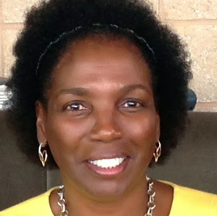Since about 2000, when DNA tests became widely available, budding and professional genealogists have used the tests to find and affirm family members. However, President of the Board for Certification of Genealogists (BCG) LaBrenda Garret-Nelson warned that DNA tests are only a tool, not the panacea, in family research projects.
Garret-Nelson provided the caution during a session at the The Afro-American Historical and Genealogical Society (AAHGS) annual conference in College Park, Maryland. “DNA is just one of many sources,” family researchers use said Garrett-Nelson as she begin her lecture on the information needed to decide when family researchers should use a DNA test.
Before relying on DNA tests, researchers should figure out what they know and what they don’t know using traditional tools including family interviews, marriage and death certificates, funeral programs, and other documentation. But Garret-Nelson also cautioned that African-Americans, in particular, have to be aware of our history and, for example, take into account that freedmen and freedwomen often took “the surnames of their former enslavers or other people in the area.”
Therefore, she explained, you cannot assume that two people living near each other or in the same household are related. “If you have questions about relationships between two families, with the same surname, then a DNA test can be useful.”
“DNA alone cannot prove anything,” she continued. The test has its limits. For instance, direct to consumer DNA testing kits cannot determine a person’s parent when the parent in question has an identical twin. This is a case where traditional sources can be very useful and complete a picture.
During her lecture, the retired tax lawyer, delved further into others issues that Black family historians face, including the intertwining of families. For instance, when two people share more than one common ancestral couple, it becomes difficult to determine which couple the DNA came from and therefore the familial relationship.
"And, once you get past a second cousin,” she continued, “the results could indicate varied relationships and you need documented evidence to determine what that relationship could be.” The test, she added, “can make it appear that you are more closely related on one family line than you really are; having more than one ancestral couple can further distort your interpretation of the test.”
When Should You Use DNA Testing to Confirm Family History
Features


Genealogical research has been a long-term avocation for the tax lawyer. She is also a life member of AAHGS and suggested that going to a “general” DNA session has its pitfall. For instance, such sessions may suggest that you need a complete pedigree and cannot take oral history into consideration. When it comes to a complete pedigree, Garret-Nelson smiled with intellect “no Black person descended from the enslaved will be able to do that, but there are other ways to reduce the odds of identifying the wrong ancestor.”
“DNA alone cannot prove anything,” she continued. The test has its limits.
Knowing Black history includes being aware that the importation of enslaved Africans into the US became illegal in 1808, but a “second diaspora occurred as cotton plantations grew in deep South states such as Mississippi. “As cotton expanded, slave owners separated families and sold them in states were cotton had become its chief money maker such as Alabama, Mississippi, and eastern Texas.” Therefore, she surmised, it is very possible for a family based in Mississippi to have a branch in Maryland.
The conference session also included meeting ethical standards such as advising clients that DNA test results can include a “non-parental event,” when test results show that a person who you think is your biological parent is not. The BCG president added that under the amended code of ethics “we are to make sure that our clients understand things like this.” While DNA tests are only a tool, she added, that “the tool can uncover information that can be very traumatic.”
Note: The 2020 Afro-American Historical and Genealogical Society (AAHGS) annual conference is Wed, Oct.14-Sat, Oct. 17 in Hampton, VA.
“DNA alone cannot prove anything,” she continued. The test has its limits.
Knowing Black history includes being aware that the importation of enslaved Africans into the US became illegal in 1808, but a “second diaspora occurred as cotton plantations grew in deep South states such as Mississippi. “As cotton expanded, slave owners separated families and sold them in states were cotton had become its chief money maker such as Alabama, Mississippi, and eastern Texas.” Therefore, she surmised, it is very possible for a family based in Mississippi to have a branch in Maryland.
The conference session also included meeting ethical standards such as advising clients that DNA test results can include a “non-parental event,” when test results show that a person who you think is your biological parent is not. The BCG president added that under the amended code of ethics “we are to make sure that our clients understand things like this.” While DNA tests are only a tool, she added, that “the tool can uncover information that can be very traumatic.”
Note: The 2020 Afro-American Historical and Genealogical Society (AAHGS) annual conference is Wed, Oct.14-Sat, Oct. 17 in Hampton, VA.
Advertisers | Contact Us | Events | Links | Media Kit | Our Company | Payments Pier
Press Room | Print Cover Stories Archives | Electronic Issues and Talk Radio Archives | Writer's Guidelines






